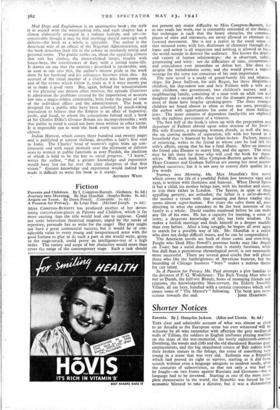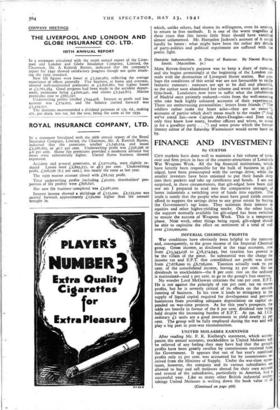Shorter Notices
Estonia. By J. Hampden Jackson. (Allen and Unwin. 8s. 6d.)
THIS clear and admirable account of what was almost as close to an Arcadia as the European scene has ever witnessed will be welcome by all who remember with affection the grey mediaeval walls of Tallinn, the soldiers in English uniforms playing marbles on the steps of the war-memorial, the lovely eighteenth-century Domberg, the woods and cliffs and the old abandoned Russian gun- emplacements, and the big abandoned estates of Balt nobles with their broken statues in the foliage, the sense of something very young in a scene that was very old. Esthonia was a Republic which had proved its right to survive, starting as it did from scratch without even a language adequate to modern needs, after the centuries of subservience, so that not only a war had to be fought—on two fronts against Russians and Germans—but a language had to be invented. Starting as one of the most com- plete democracies in the world, the Republic was forced by the economic blizzard to take a dictator, but it was a dictatorship which, unlike others, had shown its willingness, even its anxiety, to return to free methods. It is one of the worst tragedies of these years that this heroic little State should have vanished almost unlamented. Mr. Hampden Jackson's account of it could hardly be better: what might have been the rather dry details of party-politics and political experiment are suffused with the poetic light.































 Previous page
Previous page